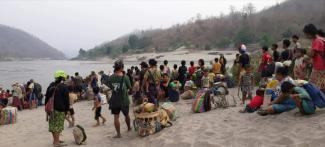
I am proud to be Karen, an Indigenous Peoples in eastern Burma. Karen have been persecuted in periodic waves by the military junta that has ruled Burma for most of the last seven decades. Hundreds of thousands of Karen have been forced to flee from the junta’s violent attacks, resulting in the deaths of thousands. One wave of persecution came when I was a child that profoundly influenced my worldview, and another wave is taking place now, after the attempted coup in February 2021.
Older and younger generations of Karen continue to suffer the brutality of the Burmese military as they try to wipe us out physically, culturally, and linguistically from this earth. My heart aches every time I think about the Indigenous people of Burma being destroyed.
Memories as a Child: Sights, Smell, Sounds
Born as an Internally Displaced Person in resource-rich Karen State, I recall only bits and pieces of an unsettled existence. There were times when my family and I lived in constant fear of the Burmese troops, but there were also cherished, yet fleeting, moments in which I experienced my beloved Karen culture and heritage. I can still vividly visualize my little village surrounded by clear and fresh streams and orchards full of organic fruit trees. I can still hear the irrigation system, bubbling along as it flowed to the orchard center to nourish the trees to give their best fruits. It was the most peaceful place on Earth—the green trees that seemed to speak as they rustled in the wind, wildflowers in every color imaginable dancing in the breeze, the priceless fragrance emanating from the orchards. Birds singing, the flowing of the stream and rainfall in the rainy season was relaxing bedtime music. However, that peaceful life did not last long. Our peaceful life was interrupted by the greedy, bloodthirsty monsters who directed the Burmese military troops to carry out a scorched earth campaign, burning my beautiful village to the ground, forcing us to flee for our lives with only the clothes on our backs, and planting landmines in and around the village to prevent us from coming back. The Burmese military persecutes us for many reasons. They want to steal our land that is rich in natural resources and wipe us out physically and culturally. The military leadership directs soldiers and other militia to attack and kill us, brutally driving us out of our own homeland with complete impunity.
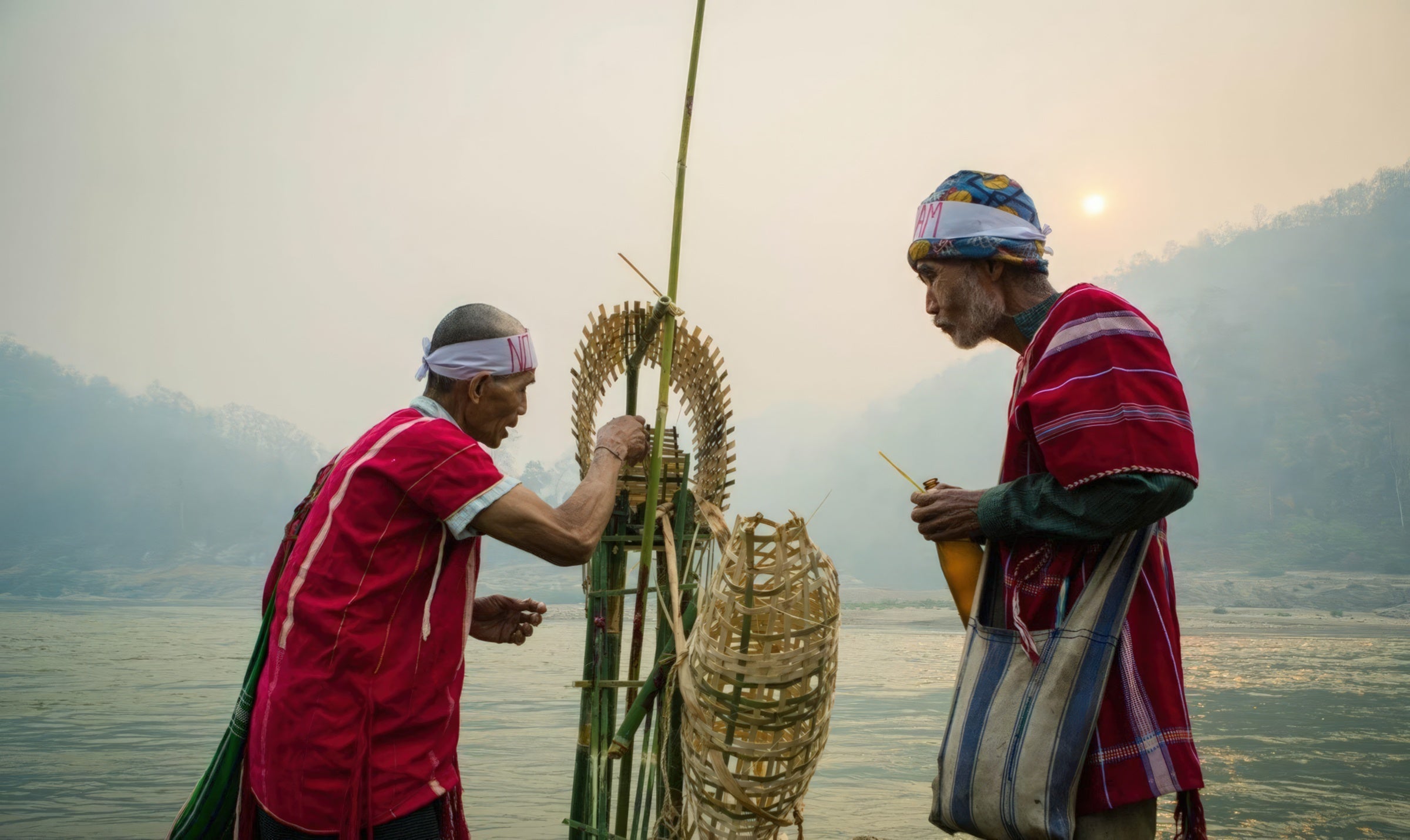
Two Elders performing a ritual calling on ther myng khae (female guardian spirits). The Karen religion is animistic and follows an ancestral matrilineage. Photo by KESAN.
Fight for Survival
Living through these attacks, my family and I had no time to think of our culture and heritage; being Indigenous is not a top priority when you are homeless and hungry. To be able to sleep and get up to see the next day was already a luxurious life back then. I remember a few brutal episodes that still haunt me. I wasn’t allowed to cry, because if I cried I could give away our hiding location and the Burmese troops could find and kill us all. While hiding in the jungle, toddlers like myself were grouped along with older people. There was little to no food, so if there was any leftover rice, usually it was kept for the youngest ones in the family. I would get a feast of white rice some days, but other days, we had to eat boiled bamboo shoots and other vegetables we scavenged around our hiding place. The rainy and winter seasons were the hardest because there was no proper shelter that could protect us from rain, mist, and cold wind. I had a small plastic tarp that wasn’t able to cover my little body, so I had to sleep with parts of my feet in the rain.
Every time I see pictures of children being carried in baskets or bags while fleeing, it brings back memories of my mother carrying me—and many other things—in a bag on her back as we fled. My mother had to carry me because I was just a toddler with short legs, and so that I would not step on a landmine. This is the life I lived in my first decade, fleeing from one location to another in the jungle of Karen State, the one place we called home. Every time we rebuilt our lives, villages, homes, schools, and community, we knew we might have to run on a moment’s notice.
Only now that I live a peaceful and productive life can I slow down and pay attention to my Indigenous self. The first part of my life was so chaotic from constantly fleeing for our lives as Internally Displaced Persons. I then became a refugee at the Thailand-Burma border, where, once again, there was no certainty and no future. However, no matter where I am, there will always be an effort, conscious or unconscious, to show or express myself as a Karen, whether through language, culture, costume, or manner. The Karen people never lose sight of being Karen and preserving our culture and heritage. Wherever the Karen People are, there will always be cultural events and expressions of community.
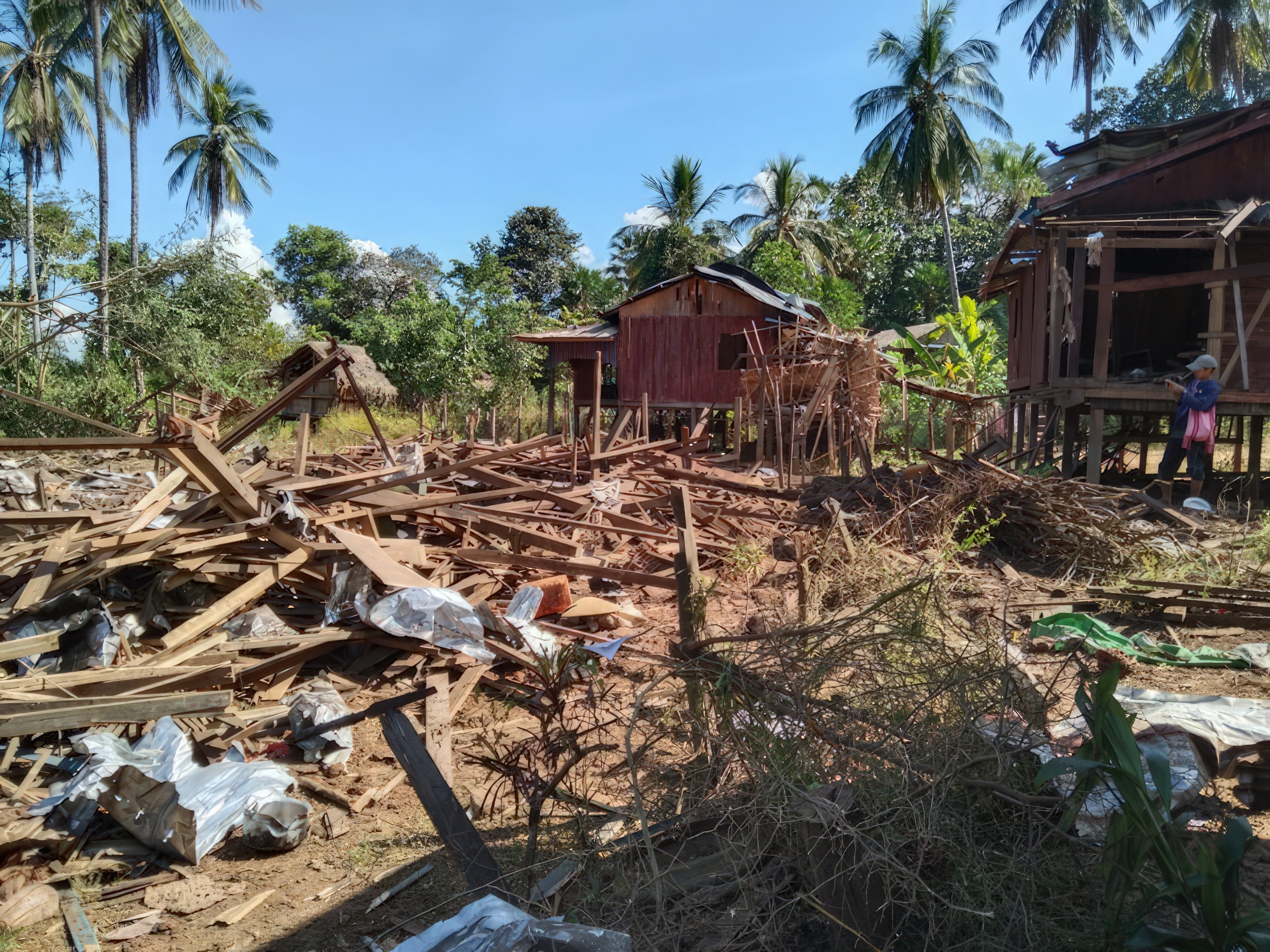
Indiscriminate airstrikes have destroyed homes and displaced thousands of Karen. Photo by KWO.
Countrywide Persecution Continues
The Burmese military regime drove us out of our native land, forcing us to seek refuge in refugee camps in Thailand, and then resettlement in a third country. Resettlement can be considered cultural genocide; we lose consistency and connections to our roots without access to Elders that can help us with cultural practices and history. When refugees like myself resettled to a third country, it wasn’t a choice. It was done to escape persecution by the junta and for survival, safety, and security. However, when we resettle, we must assimilate to the new culture and take on a fluid identity that is in between the two cultures.
Hundreds of thousands of Indigenous Peoples across Burma have lived through terrible assaults and horrific persecution by the Burmese military regime. The persecution that I faced, which cost the lives of my immediate family members and loved ones, is still going on across Burma today. The junta’s attempted coup on February 1, 2021, was not successful, and they currently retain approximately 17 percent control of the country. To maintain its power and save face in front of the international community, the junta now uses indiscriminate airstrikes and bombings, which the Indigenous civilians do not have the means to resist. They have no safe place to live in their own land.
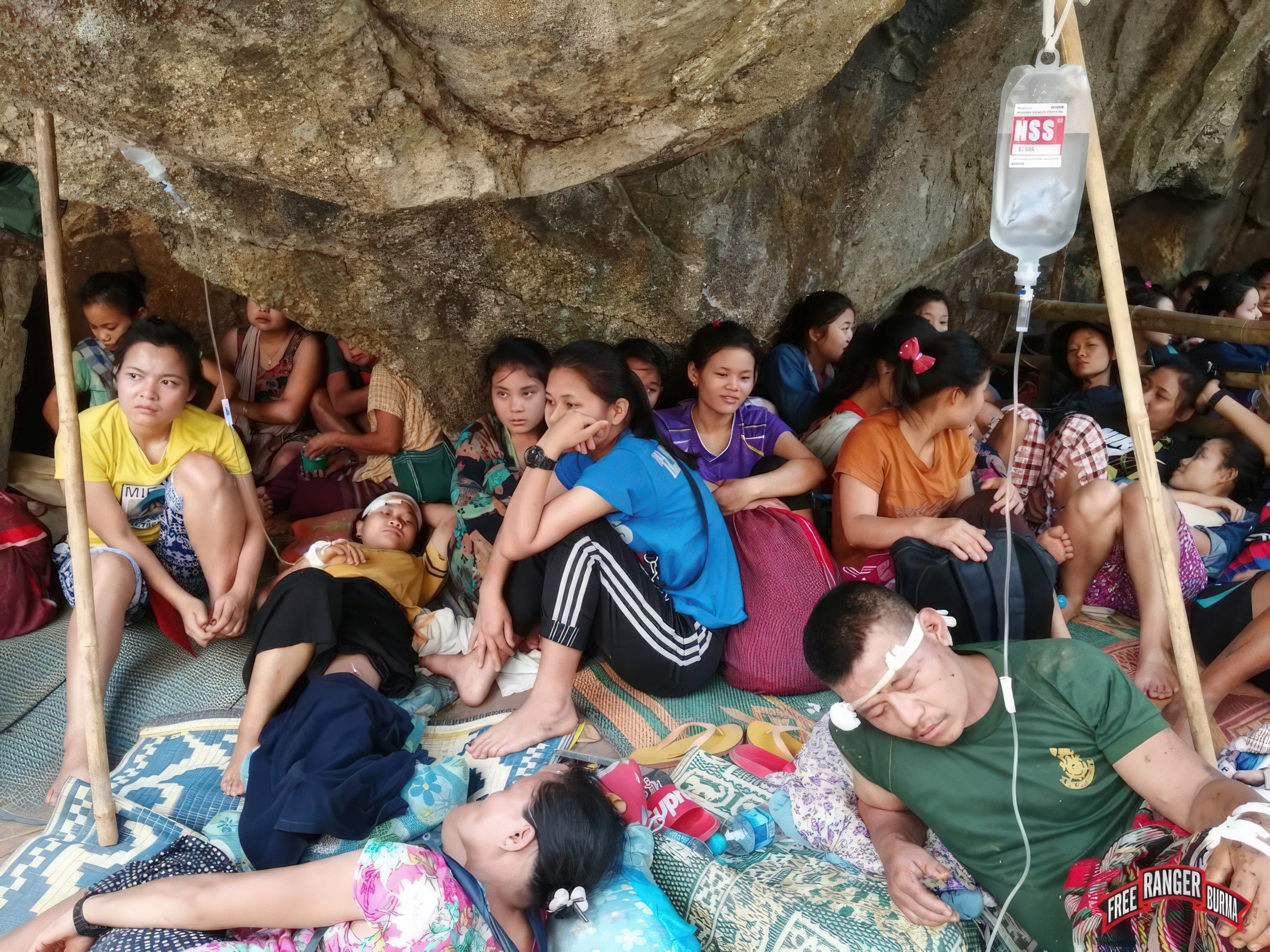
Internally displaced people hide in caves while medics treat the wounded. Photo by FBR.
The number of refugees fleeing Karenni States to Burma’s nearby borders has reached over 5,000 in the first weeks of July. Internally Displaced Persons survive in Burma’s jungles by sleeping in trees and are in desperate need of food, mosquito nets, and basic medicine. As acts of arson, murder, and arbitrary arrest occur almost daily in Burma, the Karen IDP population has increased by 180,000 since 2022. An estimated 76,800 people have been displaced in Shan State, and over 120,000 in Chin State since 2021. According to March 2023 estimates from the UN, there exist over 1.7 million IDPs across Burma, 1,376,000 of whom have been displaced since the start of the attempted coup on February 1, 2021.
The Burmese military regime has never recognized the Karen or other Indigenous Peoples, although our ancestors have been in the country for generations. They identify us as an “ethnic minority” and have sought to marginalize and extinguish us, forcing us to fight for our basic human rights to self-identification and self-determination. We have no rights, and continue to suffer at the hands of the junta. So long as we struggle for our freedom, security, and safety, we will need the help of world leaders. The Indigenous people of Burma have been fighting for our rights for more than seven decades, and we have lost hundreds of thousands of lives. However, we are still fighting. The international community, including the United States, must support our struggles and help alleviate our suffering by holding the junta responsible for the crimes they have committed against Indigenous people in Burma. If the world continues to look the other way, I don’t know how many more lives we will lose.
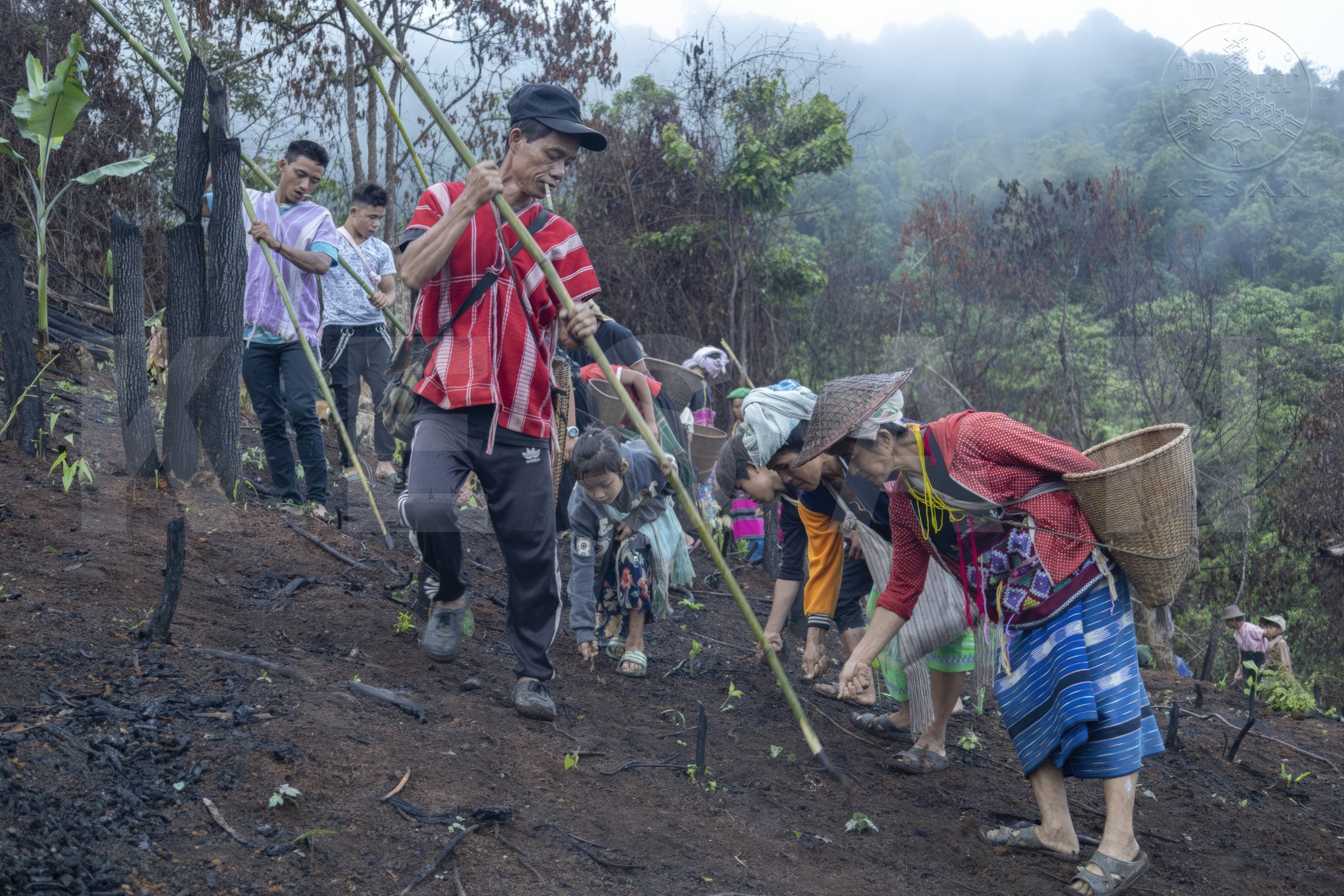
Karen way of life–sowing seeds in for the next crop of rice. Photo by KESAN.
--Myra Dahgaypaw (Karen) is a human rights activist from Karen State, eastern Burma and Senior Partnership Office for International Justice and Accountability at Unitarian Universalist Service Committee.
Top photo: Karen internally displaced people from Ei Htu Hta Camp on the banks of the Salween River. Photo by KWO.
